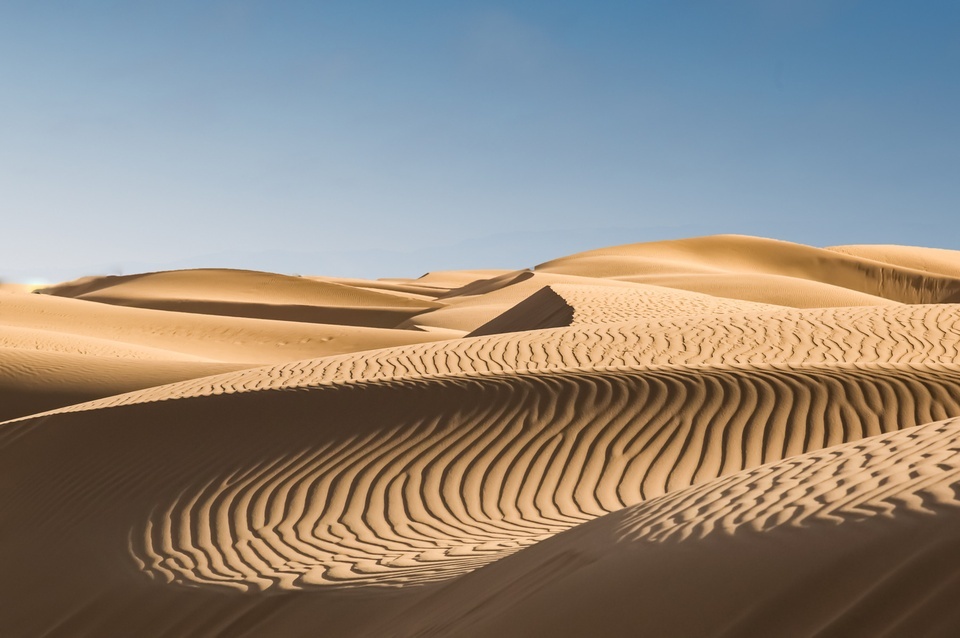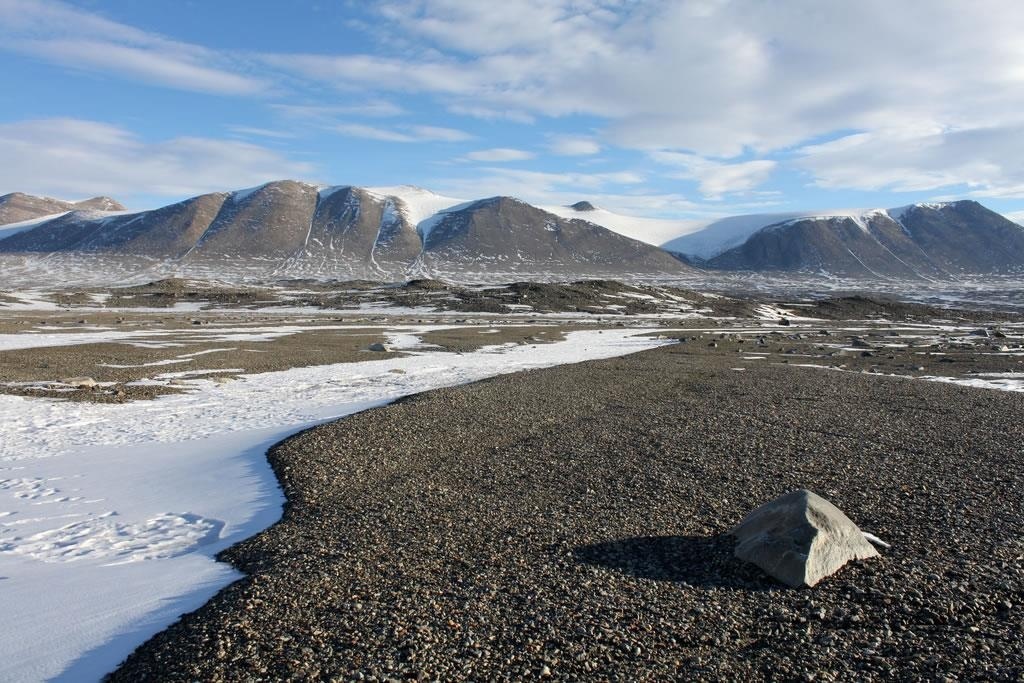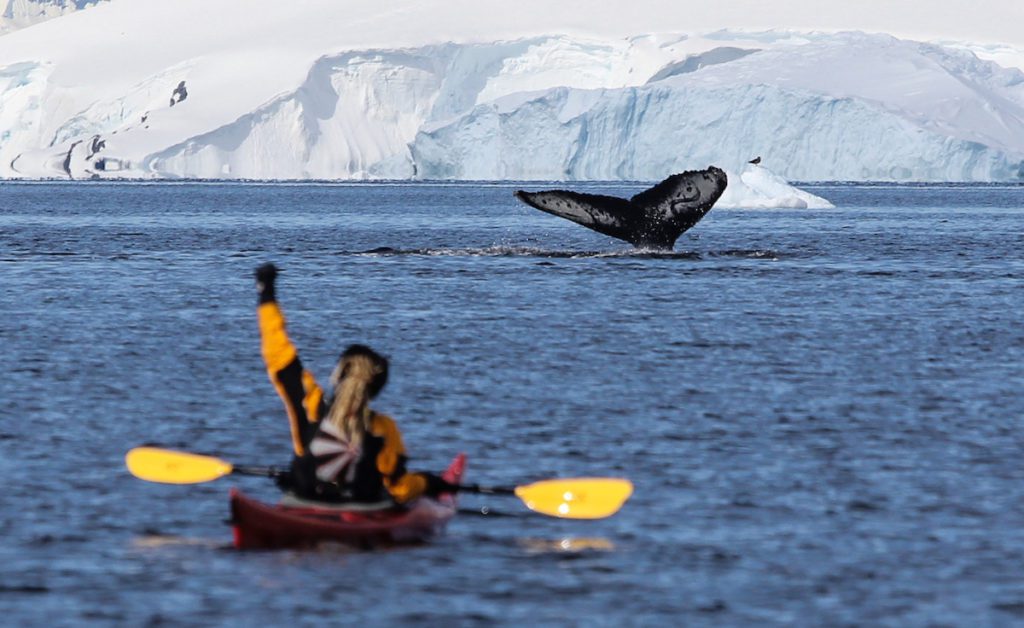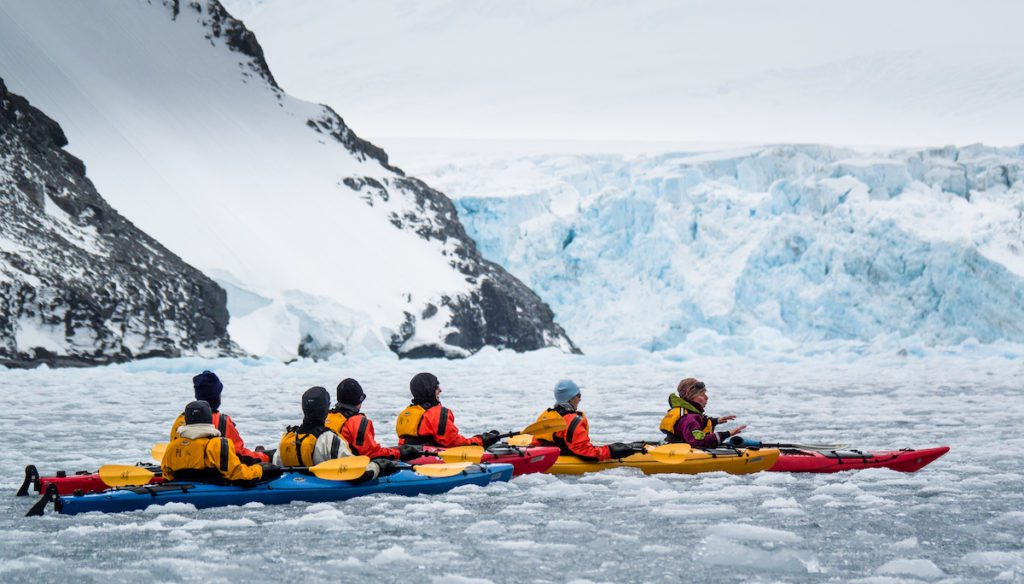The Antarctic Desert is the largest cold desert in the world. The desert receives an average of 8 inches (200 mm) of rain annually.
Deserts on Earth come in all shapes and sizes, from arid sands to giant icebergs. But where is the largest desert on the planet and how do creatures survive in these harsh terrains?
According to science books, a desert is an area where more water evaporates than it receives annually. Specifically, deserts receive less than 25 centimeters of rainfall annually.
Based on this condition, the Antarctic desert is the largest desert and also the largest cold desert in the world with an area of 14.2 million square kilometers. Meanwhile, the Sahara in North Africa is the largest hot desert, measuring 9.2 million square kilometers.

According to Live Science, the desert is often considered an arid, lifeless area, but in fact the ecosystem here is very rich, not as monotonous as many people think.
The valley in Antarctica has had no rain for 2 million years
In 2021, meteorologist Jonathan Wille of the University of Grenoble conducted a study of precipitation in Antarctica. He said that this cold desert region is often forgotten by scientists. Although areas deep in the desert appear to be devoid of life, creatures such as albatrosses and penguins can still form habitats, catching fish and other marine life from icy rivers and lakes. Sometimes, the seals even come to the shore.

However, speaking to Live Science, scientist Jonathan Wille said the climate in Antarctica is so extreme that some areas like the McMurdo dry valley haven’t even had a drop of water fall in the past 2 million years. Winds in the valley reached a speed of 320 km / h, the strongest on Earth. This has caused low humidity here, harsh climate, mountains covered with clouds, strong winds everywhere.


Even by the standards of the deserts, the climate here is too arid. Scientists from the US National Science Foundation (NSF) say that ice and snow have not appeared in the dry McMurdo valley for the past 8 million years, except for some isolated lakes and rivers under thick ice. This land is also said to be the strangest place on Earth because no living organism or plant can live except angelito bacteria. According to scientists, this type of bacteria is capable of surviving even in outer space.
The Sahara is not a dead land
Meanwhile, the Sahara Desert in North Africa is the largest hot desert in the world and the third largest desert in the world after Antarctica and the North Pole. The Sahara is expanding, now covering a quarter of the African continent.
The average annual rainfall of this area is less than 100 mm, in some places there is not even a drop of rain for many years. Therefore, many people think that this is just a barren, arid land, but in fact, life here is very rich. According to Dr André Vicente Liz of the University of Porto, the Sahara possesses a diverse range of geographical features and species.

“The Sahara Desert has surprising geographical features that are completely different from human understanding such as a rich landscape, a lot of minerals below the surface, and a climate that varies by space and time. space,” the researcher told Live Science.

3 comments
Thanks for sharing. I read many of your blog posts, cool, your blog is very good.
Your point of view caught my eye and was very interesting. Thanks. I have a question for you.
Reading your article helped me a lot and I agree with you. But I still have some doubts, can you clarify for me? I’ll keep an eye out for your answers.